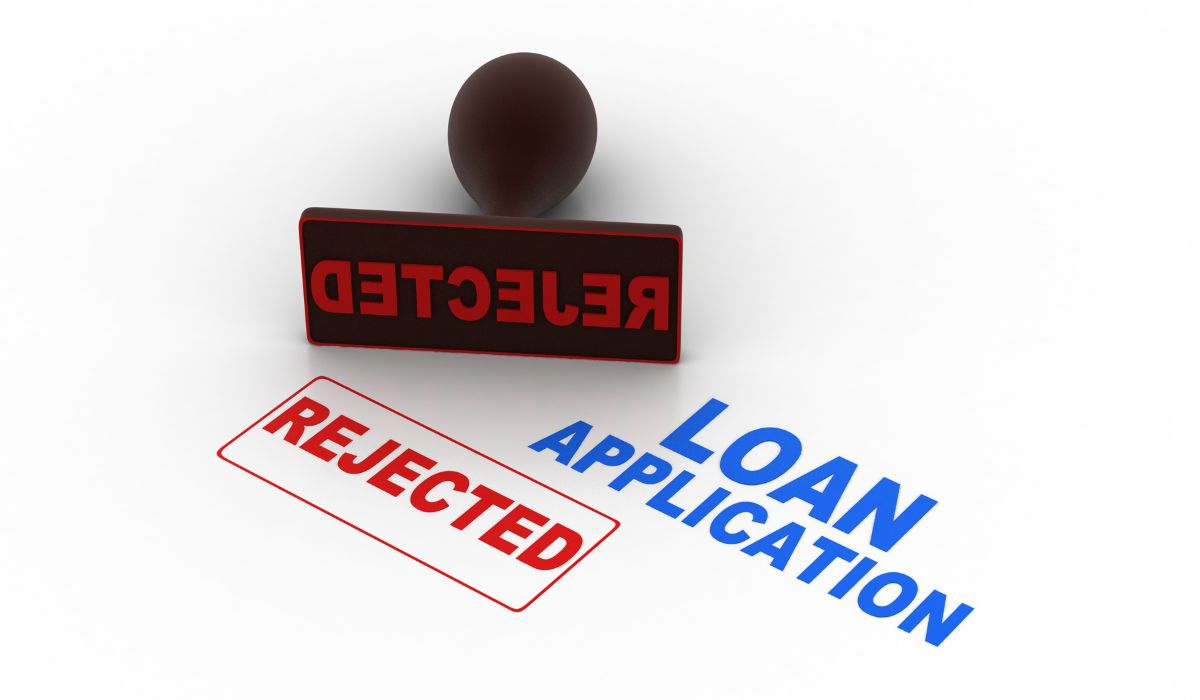Common Reasons for Why Personal Loan Rejected
It’s not easy to hear a “no” after putting in so much effort into your personal loan application. You probably feel frustrated and disappointed. But don’t worry, you’re not alone. There are many people who face the same situation.
By now, you’re probably asking yourself what are the reasons why personal loan rejected in Singapore.
Learning the reasons why your personal loan application was rejected can not only help you understand where you went wrong, but also gives you the opportunity to turn your mistakes around.
Ready to find out why personal loan rejected in Singapore? Keep on reading.
Here at OMY Singapore, you will discover the following:
Why Personal Loan Rejected In Singapore: 7 Common Reasons

Before you start blaming the bank for your rejection, it’s essential to understand the reasons why they said no to you in the first place. To give you a clearer picture of why personal loan rejected in Singapore, we’ve rounded up the most common reasons for loan rejections below.
You don’t meet eligibility requirements
Banks and financial institutions in Singapore have specific eligibility criteria that applicants must meet in order to qualify for a personal loan. This can include factors such as age, income, credit score, and employment status. If you don’t meet these requirements, your loan application is likely to be rejected.
First, age eligibility for bank-issued personal loans starts at 21 years old. There’s also an upper age limit for borrowers, usually ranging from 60 to 65 years old.
Second, Citizenship or Permanent Resident status is also worth considering. Foreigners residing in Singapore can apply for personal loans as well, but they usually face stricter criteria for eligibility.
Third, meeting an annual income threshold is crucial to ensure repayment capability. This is typically S$20,000 to S$30,000. Lower income requirements might be available through licensed moneylenders and other financial institutions.
Lastly, proof of employment or income is also required, whether it’s through payslips, bank deposit history (for self-employed individuals), or CPF statements. Usually, banks need the latest three months’ proof of income documents.
You have a low credit score and credit history
Your credit score is a measure of your creditworthiness and ability to repay debts. Banks and financial institutions use this score to assess the risk of lending money to you.
If you have a low credit score, it indicates to banks and financial institutions that you may have a history of late payments, defaults, or even bankruptcy. All of these factors can make you a high-risk borrower, and banks may be reluctant to approve your loan application.
Take a look at this stable to see the range of credit scores with their probability of default.
| Score Range | Risk Grade | Probability of Default | |
|---|---|---|---|
| Minimum | Maximum | ||
| 1911 to 2000 | AA | 0.00% | 0.27% |
| 1844 to 1910 | BB | 0.27% | 0.67% |
| 1825 to 1843 | CC | 0.67% | 0.88% |
| 1813 to 1824 | DD | 0.88% | 1.03% |
| 1782 to 1812 | EE | 1.03% | 1.58% |
| 1755 to 1781 | FF | 1.58% | 2.28% |
| 1724 to 1754 | GG | 2.28% | 3.46% |
| 1000 to 1723 | HH | 3.46% | 100.00% |
You don’t have a stable job
It’s understandably difficult for banks and financial institutions to trust that you have the ability to repay your loan if you don’t have a stable job.
That is not all. Those who just started a new job or constantly change jobs may not be seen by banks as someone who has a stable income source.
Moreover, if you work as a freelancer or have an unstable income, banks may not approve your loan application if you fail to provide additional documentation such as contracts or invoices to show a steady flow of income.
You have a high debt to income ratio
The debt-to-income ratio is a measure of how much debt you have compared to your income. If you have a high debt-to-income ratio, banks may think you’re already struggling to manage your debts and may not be able to repay the loan you’re applying for.
According to the Monetary Authority of Singapore, the highest amount for unsecured loans, covering personal, education, and renovation loans, along with credit card lines and debts, is set at 12 times your monthly income.
For instance, if you’ve already borrowed up to 10 times your monthly income, the maximum potential loan amount allowed would be limited to two times your monthly income. Exceeding this amount means that you’ve hit the borrowing limit.
You borrowed too much
This is one of the most overlooked reasons why personal loan rejected in Singapore. Keep in mind that loan providers assess your ability to repay your loan based on your income and existing debts. If you apply for a loan that is too large, it may exceed the loan provider’s assessment and lead to your application being rejected.
Therefore, calculate first how much you can realistically afford to borrow. Taking on too much debt can lead to financial strain and may even result in defaulting on your loan payments.
Additionally, borrowing too much can also negatively impact your credit score, making it even harder to obtain a loan in the future.
You have missing information on your application
It’s crucial to ensure that all information provided on your loan application is accurate and complete. Missing or incorrect information can lead to delays in processing and even rejection of your loan application.
You don’t have enough credit information
When applying for a loan, it’s vital to have a sufficient credit history since this demonstrates your ability to make repayments on time. Of course, this can be quite difficult to avoid especially if you just graduated or you’ve never applied for a loan or credit card before.
How To Solve Why Personal Loan Rejected In Singapore: Actionable Tips You Can Follow
Now that you know the possible reasons behind why personal loan rejected in Singapore, it’s time to take action to improve your chances of getting approved. Here are some tips to help you.
Pay off your existing loans
To improve your chances of getting approved, focus on paying off your existing debts. This will not only improve your debt-to-income ratio but also increase your credit score, making you a more attractive borrower to loan providers.
Increase your credit score
Ensure that your credit score is as high as possible. One way to do this is to pay all your bills on time. Late payments can have a significant negative impact on your credit score. Additionally, consider keeping your credit card balances low since having high credit card debt can also lower your credit score.
Get a stable job
As mentioned above, your job plays a crucial role in why personal loans are rejected in Singapore. That said, having a stable source of income can significantly increase your chances of getting approved for a personal loan.
Loan providers typically require applicants to be employed for at least three to six months to a year before being eligible for a personal loan. If you’re currently unemployed or have an unstable job, consider working for the suggested period first. This will show banks that you have a steady income stream and you’re capable of making repayments on time.
Take out a smaller loan
A lot of times, borrowers tend to apply for a loan that is larger than what they can realistically afford to repay. To increase your chances of getting approved, take a smaller loan that you can comfortably repay without straining your finances. This tip is also particularly useful for individuals who do not have enough credit history.
Restructure your debts
This tip to combat why personal loan rejected in Singapore involves consolidating your debts into one loan with a lower interest rate. You may also negotiate with your creditors to have your repayment terms extended or adjusted to make your debts more manageable and improve your ability to repay a new loan.
Get a cosigner
A cosigner is someone who agrees to be responsible for repaying the loan if you are unable to do so. Having a cosigner with a good credit history and stable income can increase the lender’s confidence in your ability to repay the loan, and thus improve your chances of getting approved.
Make sure your loan application documents are complete and accurate
Double-check all the details before submitting your application, including your personal information and financial statements. If you’re unsure about any information, reach out to the bank for clarification before submitting your application.
A Word From OMY
acing rejection for a personal loan is a common experience, especially for first-timers. Always remember that it’s not a reflection of your worth. Understanding the reasons behind why personal loan rejected in Singapore can be empowering since it enables you to work on different areas of your financial well-being.
Comparing various loan offers can also do wonders in finding the best option before applying for a personal loan. This is why taking advantage of loan matching platforms like OMY Singapore can be a proactive step forward.
Get a personalised loan offer tailored for you in just a few clicks.







